| |
| Abraham and Isaac: later images |
| |
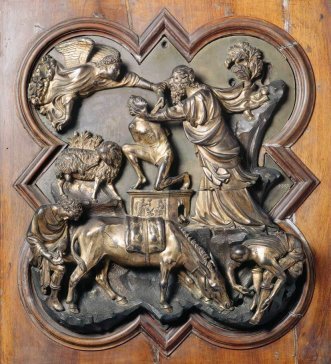 |
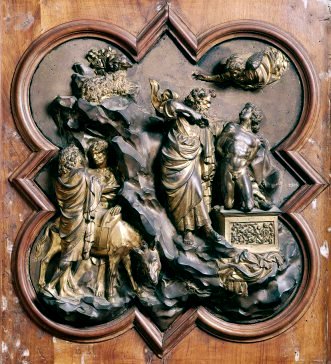 |
| Bronze panels by
Brunelleschi (left) and Ghiberti (right). These were their entries to
the competiton held in Florence in 1401 for the contract to design and
make the baptistery doors. Ghiberti won. In my view, the right choice:
Isaac holds rather an awkward pose in Brunelleschi's version. Both
panels are in the Bargello museum in Florence. |
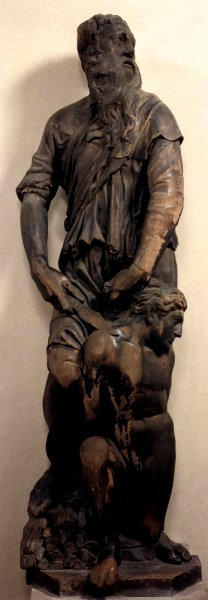 |
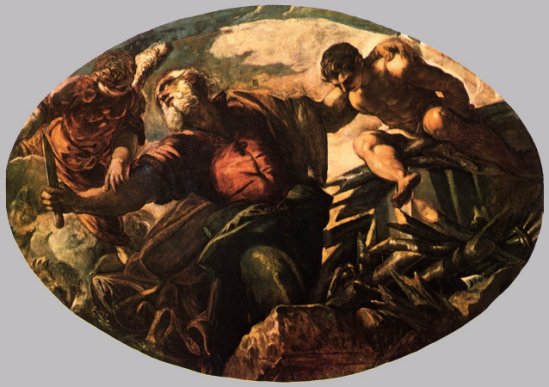 |
| Above right: The
Sacrifice of Isaac by Donatello, Museo dell'Opera del Duomo, Florence.
c1418. Right: a much later image by Tintoretto in the Scuola Grande di
San Rocco, Venice, from 1577. Both images show an increasingly humanist
interpretation, focusing on the drama and emotion of the story.
, |
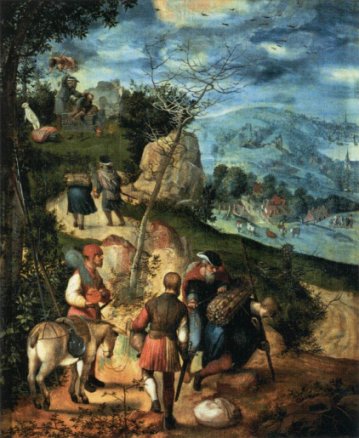
Anonymous, c 1535. Louvre, Paris |
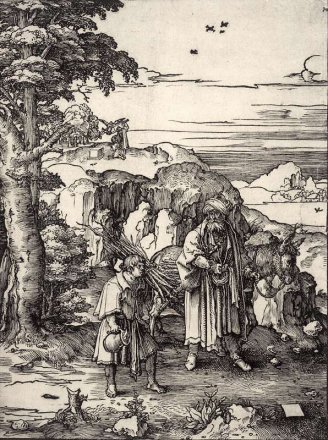
Lucas van Leyden. Woodcut, c1517.
Rijksmuseum, Amsterdam |
A different take on the story. The two images above show Abraham and
Isaac on their way to the mountain in Moriah. Both are suggestive of the
Passion narrative of the Via Dolorosa. |
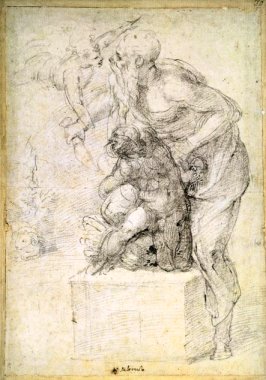
Michelangelo, c1525
Casa Buonarroti, Florence
|
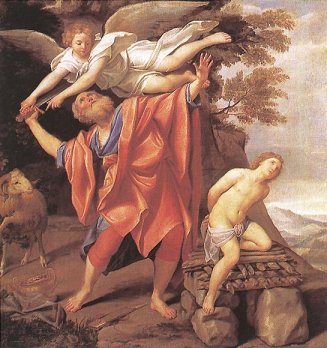
Domenichino, c1627.Prado, Milan |
| More images, above and
below, showing how later artworks stressed the drama and emotion
of the story. The Caravaggio painting is particularly dramatic,
even violent, with an agonised Isaac, an insistant angel, and an Abraham
that looks rather annoyed about being interupted. |
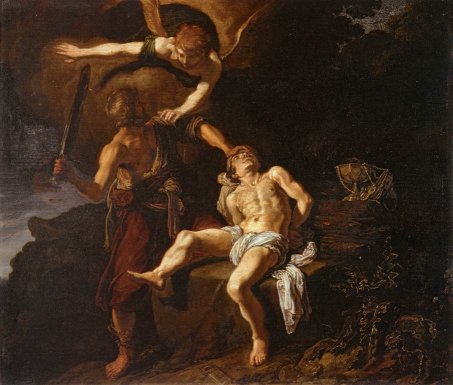
Pieter Pietersz Lastman. C 1612. Rijksmuseum, Amsterdam
|
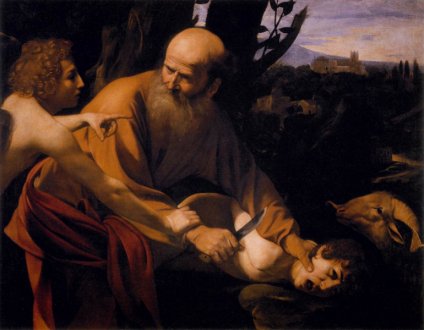
Caravaggio, c 1601. Uffizi,
Florence |
A rather odd painting to
conclude with. It is full summer: in the foregound, children are at play
while farmers are busy shearing sheep. Behind them the harvest is well
under way. So what on earth is this painting doing here?
|
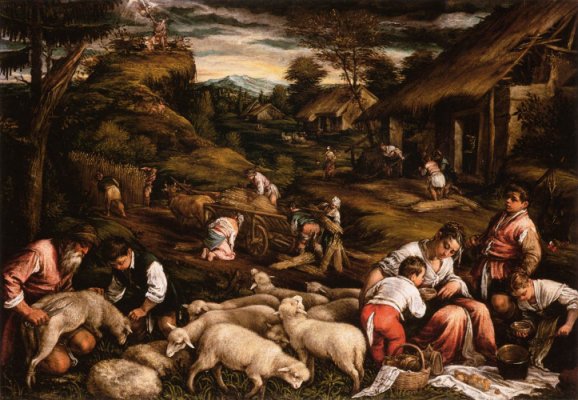
Jacopo
Bassano. C 1575. Kunsthistorisches Museum, Vienna
|
| Let's look at the distant
scene in more detail. Yes, there's Abraham, about to deliver the fatal
blow, and the angel trying to stop him. Bassano often dabbled with this
rather strange genre, showing happy, often bucolic scenes in the
forground, and a biblical narrative tucked away almost out of sight in
the background. He may have borrowed the idea from Flemish
painters such as Aertsen. |
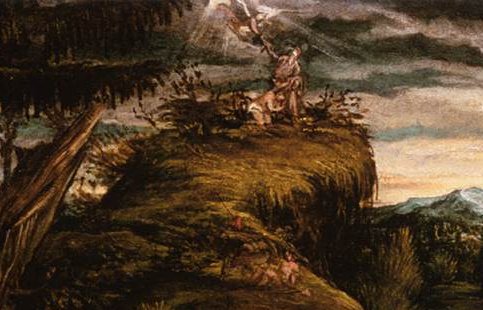 |
| |
|
Back to page 1
Home page:
explore the site |











